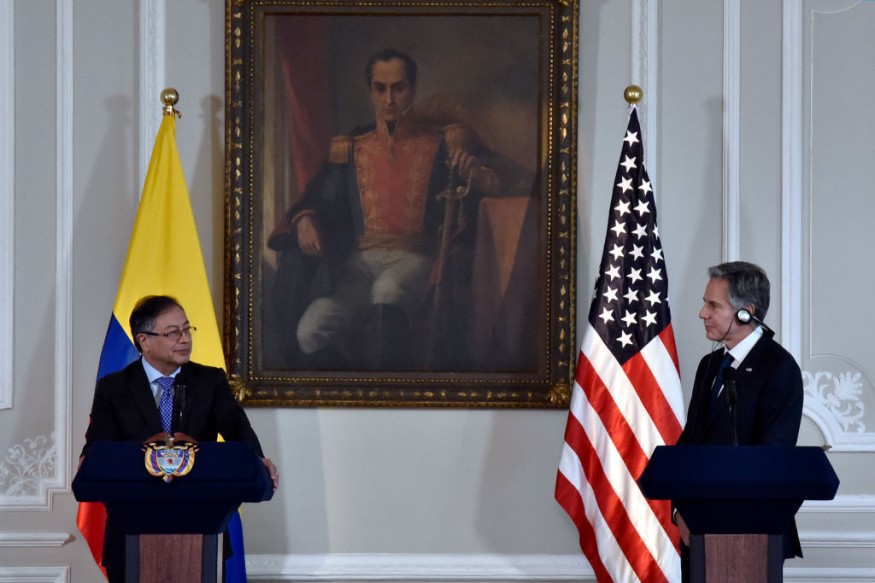Antony Blinken in Colombia: U.S. Backs Gustavo Petro's 'Holistic' Approach to Fighting Drugs

After years of strict and often-violent putdowns of cocaine producers in Colombia have failed in curbing drugs, the South American country's new president, Gustavo Petro, is trying a new approach. And with U.S. Secretary of State Antony Blinken visiting Colombia for the first time, the United States has now thrown its support to this new "holistic" approach.
Blinken was in Bogota to meet with the new Petro government and was the first stop in his tour of South America. After this, the U.S. Secretary of State will also be heading to Chile and Peru afterward, according to VOA News.
"We strongly support the holistic approach that President Petro's administration is taking to counter narcotics through comprehensive rural security, justice, development, environmental protection, supply reduction as well as demand reduction including in the United States," said Blinken during a press conference following his meeting with President Gustavo Petro and Vice President Francia Marquez.
Gustavo Petro's Language Softens After Meeting With Antony Blinken
During his speech at the U.N. General Assembly last month, Petro hit the United States and said that the U.S.-led efforts to fight drug trafficking had been "a failure." He also added that the U.S. and other developed countries are pursuing a punitive approach toward the drug trade. He stated that this approach harmed small farmers in developing nations.
However, according to the Associated Press, Petro had a less combative tone on Monday as he spoke with Blinken.
Read also: Colombia: 7 Police Officers Killed in Ambush After President Gustavo Petro Called for Peace
The former rebel, now serving as Colombia's president, stated that he and Blinken spoke about "more flexible" ways of tackling the drug trade. These aim to "reduce production and consumption across the hemisphere."
The main target would be coca farmers in remote areas in Colombia. However, instead of attacking them and burning their crops at gunpoint, the government is planning to give them land titles instead, integrate them into the legal economy, and have them grow other crops, and not coca, which is the main ingredient for cocaine.
Petro did admit that while tougher action is required against white-collar criminals and drug organizations, helping out poor farmers who grow coca and having them grow other crops instead would help reduce cocaine production. He also stressed that the aerial fumigation of coca crops with chemicals would continue to be banned to protect the environment. However, those "industrial-sized" coca fields run by organized crime will still be eradicated manually.
Antony Blinken Praises Colombia's Migration Strategy
Blinken also talked to Bogota Mayor Claudia Lopez about immigration during his trip to Colombia, as well as American support for Venezuelan migrants. He even visited a migrant integration center in support of Colombia's Temporary Protected Status policy for Venezuelan migrants.
During his visit, Blinken praised Colombia's migration strategy and said it remains a model for the region. "What we have seen today could be a model for other places to replicate," he said and added that there won't be a "lost generation of Venezuelans" because of the policy.
The Anadolu Agency reported that 500,000 Venezuelans are currently staying in Bogota, with the city hosting over 20% of the 2.5 million migrants from Venezuela.
This article is owned by Latin Post.
Written by: Rick Martin
WATCH: Secretary Blinken holds a joint press availability with Colombian President Gustavo Petro - U.S. Department of State
Subscribe to Latin Post!
Sign up for our free newsletter for the Latest coverage!
© 2026 Latin Post. All rights reserved. Do not reproduce without permission.














